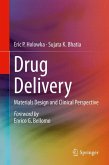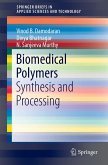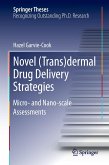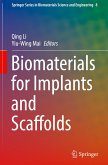Current pharmaceutical and clinical approaches to the treatment of disease suffer from the inherent limitations in the specialization of drugs introduced to physiological systems. The interface of clinical and material sciences has allowed for a broad spectrum of creative approaches with the potential to alleviate these shortcomings. However, the synergy of these disciplines also presents problems in which nascent technology lacks the necessary evaluation within its intended clinical environment. Given the growing potential for materials science to address a number of unanswered therapeutic needs, it remains even more pressing to validate emerging drug delivery technologies in actual clinical environments.
Drug Delivery: Materials Design and Clinical Perspective addresses the core fundamentals of drug delivery using material science and engineering principles, and then applies this knowledge using prominent examples from both the scientific literature and clinical practice. Each chapter focuses on a specific drug delivery technology, such as controlled-release materials, thin-film materials, or smart materials. Within each chapter, an initial section on "Engineering Concepts" reviews the relevant fundamental principles that guide rational design. The following section on "Materials Design" discusses how the design process applies engineering concepts for use in physiological systems. A third section on "Implementation" discusses current approaches in the literature which have demonstrated effective drug delivery in controlled environments. Finally, each chapter contains several sections on "Clinical Applications" which describe the validity of materials approaches from a clinical perspective; these sections review the safety and efficacy of drug delivery systems for specific, compelling medical applications. The book thereby bridges materials science with clinical medicine, and provides the reader with a bench-to-bedside view of novel drug delivery systems.
· Provides a comprehensive description of drug delivery systems from a materials perspective
· Includes a wide-ranging discussion of clinical applications of drug delivery systems
· Presents separate chapters on controlled release materials, thin film materials, self-microemulsifying materials, smart materials, etc.
· Covers fundamental engineering principles, rational materials design, implementation testing, and clinical applications for each material type
Drug Delivery: Materials Design and Clinical Perspective addresses the core fundamentals of drug delivery using material science and engineering principles, and then applies this knowledge using prominent examples from both the scientific literature and clinical practice. Each chapter focuses on a specific drug delivery technology, such as controlled-release materials, thin-film materials, or smart materials. Within each chapter, an initial section on "Engineering Concepts" reviews the relevant fundamental principles that guide rational design. The following section on "Materials Design" discusses how the design process applies engineering concepts for use in physiological systems. A third section on "Implementation" discusses current approaches in the literature which have demonstrated effective drug delivery in controlled environments. Finally, each chapter contains several sections on "Clinical Applications" which describe the validity of materials approaches from a clinical perspective; these sections review the safety and efficacy of drug delivery systems for specific, compelling medical applications. The book thereby bridges materials science with clinical medicine, and provides the reader with a bench-to-bedside view of novel drug delivery systems.
· Provides a comprehensive description of drug delivery systems from a materials perspective
· Includes a wide-ranging discussion of clinical applications of drug delivery systems
· Presents separate chapters on controlled release materials, thin film materials, self-microemulsifying materials, smart materials, etc.
· Covers fundamental engineering principles, rational materials design, implementation testing, and clinical applications for each material type








